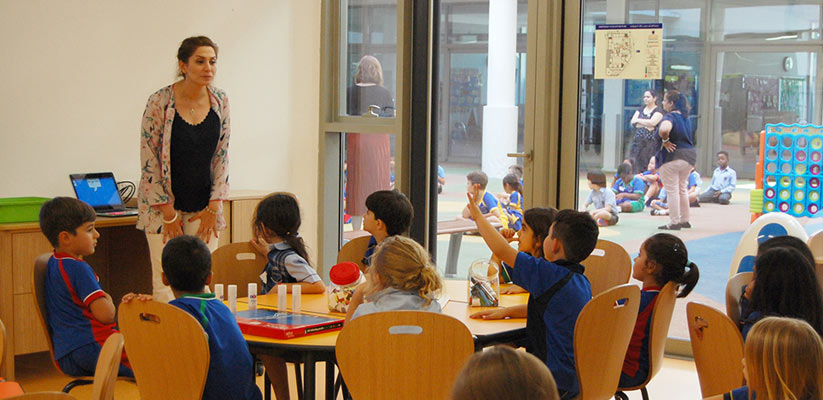Change your words, change your mindset
“Change your words, change your mindset”, an advice given to me by my teaching mentor and an attitude which I have instilled within my classroom ever since. Positivity and compassion are key values at Arcadia as we understand the importance of both words and mindsets to aid personal growth and academic success.
Over the past few years, there have been many important studies into the understanding of how students learn and how we can equip children with the skills needed to become lifelong learners, something which we endeavour to infuse into each Arcadia student.
The idea of a child’s mindset is at the forefront of the research, for example, Carol Dweck’s work on “Developing a Growth Mindset”.
What is a growth mindset?
Carol Dweck identified two key mindsets – a fixed mindset and a growth mindset. A fixed mindset can be encapsulated as “I can’t do it” whereas somebody with a growth mindset might think “I can’t do it yet”.
“Yet” is such a small word but it has a huge impact on a child’s mindset. It shows a child that there is a curve to their learning; they are on a journey. A growth mindset gives children the belief that their ability to learn is not fixed – it can change with effort – it allows children to believe they are in control of their success.
How is a growth mindset fostered within the classroom?
We teach children that their brain is akin to a muscle. When we try new things that are challenging, it is like exercise for the brain – it can only get stronger! When children are aware of how the brain reacts to challenge, they are much more likely to persevere when they make mistakes, as they have an understanding that failure is not a permanent condition. ‘Fail’ in fact stands for – the first attempt in learning!
At Arcadia, we generate a classroom environment where mistakes are not to be feared but are seen as a tool in our process of learning. If our students view mistakes as something to fear, it will result in them being reluctant to try something new or be creative, or of tackling a problem in a different way. As a school, we have a marking system which allows mistakes to be seen as improvement tools, we make our comments and feedback as specific as possible and allow children time within the next lesson to respond to that marking – they might need to improve spellings, add punctuation or complete a challenge question to extend the learning further. As teachers, we ensure the language we use during this time is as positive and as constructive as possible to ensure our focus is on the process of learning and not solely on results.
Our aim at Arcadia is to enhance the learning of each child. We do this by helping to foster a growth mindset in our students, our staff and also our parents. We all have a much greater ability to develop our potential than we may initially think. It takes hard work and we certainly cannot achieve it without taking chances and making mistakes on our journey to become lifelong learners.

